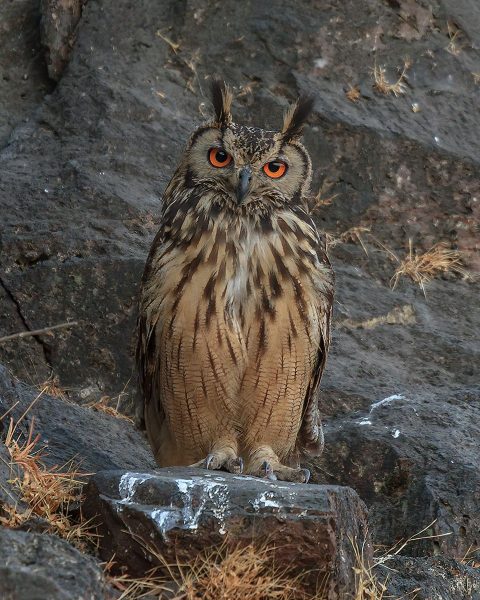The Secret to a Better Internet? Post Less, Chat More - The New York Times – “One of the web’s oldest functions remains one of its most powerful and promising. As we debate the negative effects of social media, consider the earliest and arguably most prevalent way that we use the internet to connect with other people: the chat. Networked chatting predates the internet; there might not be a more obvious thing to do with two connected computers. In 1988, the first version of Internet Relay Chat, or IRC, made widely available a new and yet instantly familiar mode of communication: groups of people choosing each other and then typing together in real time. From then on, chat was everywhere.
Mainstream service providers, including CompuServe and AOL, embraced chat. So did email services. Napster was a chat app. Early social networks either had chat features (like MySpace) or were populated by users who also had accounts on popular instant message services. Multiplayer gaming, a profoundly social experience, has always hinged on the embedded or peripheral group chat. Smartphones immediately became the ultimate chatting machines.
Challenges and opportunities for a new decade in tax administration
Commissioner’s address to the 14th International ATAX Conference on Tax Administration.
Paving the way forward - working together to meet the changing needs of our clients
Commissioner’s address to the Institute of Public Accountants National Congress 2021.
‘Meaningful improvements underway’: Chris Jordan outlines priorities ahead
Untimely Futures Places Journal
Are You My Mother Tongue? Lapham’s Quarterly
The human chain across the Baltic states; the 1746 Scottish kilt ban; legislators and slumlords in 19th century New York battling over windows and sunlight; when the dictator of Portugal was removed from office no-one told him for two years.
How Australia’s Eastern Barred Bandicoot Came Back From Extinction Smithsonian
Physicists create discrete time crystals in a programmable quantum simulator Physics World
Lust for life immortal Times Literary Supplement. Bezos and Thiel.
How Covid-19 spreads: narratives, counter-narratives and social dramas (preprint) Trisha Greenhalgh et al., Authorea. “In this paper, we contrast inside-track narratives of SARS-CoV-2 transmission from the World Health Organisation, UK government and their official scientific advisers with outside-track counter-narratives offered by aerosol scientists. We examine related events that unfolded as social dramas — hand-cleansing rituals, care home deaths, public masking and occupational health and safety.”
The biggest social apps of the 2010s, with their various spins on posting, sharing and following, all eventually built either chat features or chat-like DM services, some of which were spun off. Livestreaming? That’s about chat, too. For people who have spent enough time online — or, probably, most people under the age of 50 — chatting in a live context is as natural as talking on the phone, and quite a bit more common. Many of the problems people identify with social media can be traced not to chats but feeds. It’s too stimulating. It’s too boring. It makes us loathe ourselves. It requires us to vet disinformation or fall into its snares. It forces us to endure the worst parts of celebrity. It’s the opposite of a social experience: It’s alienating.
…Chatting isn’t posting. It unfolds in real time, or at least can, if both parties are present. Chats select themselves — they’re conversations you enter with either one other person or many. You join, you leave. You have the freedom to join and leave. Self-selected groups tend to share something — if not a set of well understood norms and expectations, at least a common interest or purpose. They’re private by default, and tend to have a great deal of latitude to set their own rules, even on big centralized services. You can see everything from the chat, and nobody can see you…”
- “There’s definitely been a shift from more traditional abstract philosophical work earlier in my career, to more feminist and political work more recently… Honestly a lot of it was just a matter of paying more attention” — Jonathan Ichikawa (UBC) is interviewed about his life and work
- “Terrorism involves the intentional harming of non-combatants…, is committed for ideological reasons and/or political ends,” and often includes “the intrusion of fear into everyday life” — “the US drone campaign meets these criteria, argues Jessica Wolfendale (Marquette)
- “What are the most important questions mainstream philosophy ignores or has forgotten about today?” — 10 philosophers give their answers
- “I never saw autism as something that applied to me—that is, until I started reading first-person descriptions by autistics, in particular, autistic women, of their own experiences as autistics in a neurotypical world” — Amandine Catala (UQAM) interviewed about her research and her life as a late-diagnosed autistic woman in philosophy
- “The past can be a source of information on moves that are missed in present professional discussions” — and so “historians of philosophy are a collective good to the profession that it pays to have a large enough pool to have around,” writes Eric Schliesser (Amsterdam)
- “Philosophy, the survey seems to imply, consists of a set of clear questions whose answers can usually be bundled into two or three options” — but “a lot of the philosophical work that I find most meaningful doesn’t take this form. Instead, it challenges the questions themselves,” says David Egan (Outer Coast)
- Next time someone asks why we should bother studying the history of philosophy — direct them to this thread
